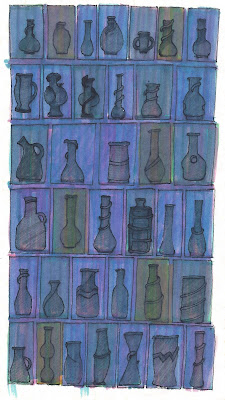March 2013
ISBN 978-0-9790888-6-5
ISBN 978-0-9790888-6-5
flim forum press
166 pages, 7x9, $20
166 pages, 7x9, $20
Poems by Paul Hannigan (1936-2000), a Boston-area poet most active during the late 60s, early 70s, with ties to poets and writers from that time and place, including: Fanny Howe, Bill Knott, William Corbett, DeWitt Henry, and James Tate. The Problem of Boredom in Paradise contains poems from a young Hannigan’s A Theory of Learning (1966), the chapbook Holland and the Netherlands (Jim Randall’s Pym-Randall Press, 1970), selections from his books Laughing (Houghton Mifflin, 1970) and The Carnation (Tom Lux’s Barn Dream Press, 1972), and the entirety of Bringing Back Slavery (Dolphin Editions, 1976). Also: a large portion of an unpublished manuscript The Higher Slum (1975), an assortment of other unpublished works from the 80s and 90s, and a few original drawings.
Paul Hannigan, society reporter on safari, sketches serpentine philosophers and corporate baboons, chronicles “these degrading surprises we call our days.” Like a good comedian, he paints these fools on his own face, in othered self-portraits, alternately toothy and toothless, sad saccharine, smothered in “moral sherbet.” Hannigan mumble mumbles a messy subjectivity, all the insecurities of our race, gender, sexuality. He can be rhapsodically self-felicitous in fantasies of self-pity. He can be witty, crude, and brutally cruel. Paul Hannigan, fall-guy, castaway, shackles Milton with suburban shopping malls and maps over happiness with The Bush, that colonial/genital beachhead. Hannigan’s poems are busy napping, bong coughing, constantly undressing, disabling, donning a series of hospital gowns. Perverted lyrics parade from his hopelessly open mouth.
You have already
had enough fun
now you must
what watch watch
and listen and
remember. Sort
according to subject.
And cross-reference.
At your dwindling
so-called leisure.
had enough fun
now you must
what watch watch
and listen and
remember. Sort
according to subject.
And cross-reference.
At your dwindling
so-called leisure.

